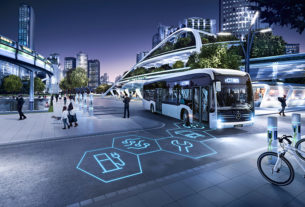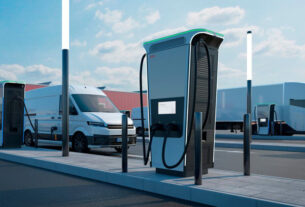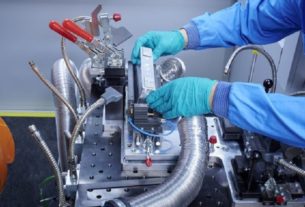Mercedes-Benz’s all-electric luxury sedan ‘EQS’ that is scheduled to launch next year with a WLTP range of over 700 km will be equipped with CATL cell modules.
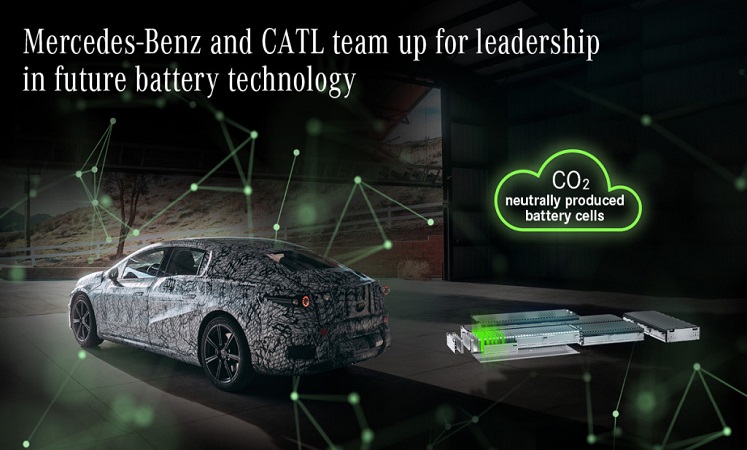
Mercedes-Benz and CATL (Contemporary Amperex Technology Co., Limited) have recently entered the next stage of their strategic partnership, and will create cutting-edge battery technology in support of the high-volume electrification of the brand’s car portfolio. The car maker is accelerating its “Electric First” strategy with advanced, CO2-neutrally produced battery cells, modules and systems supplied by CATL, a technology leader in lithium-ion batteries.
The agreement covers the full range of battery technologies, from cells across modules for Mercedes-Benz passenger cars to entire battery systems for Mercedes-Benz Vans in promising innovative technology configurations. This also includes the CATL cell-to-pack (CTP) design, which eliminates conventional modules and integrates the cells directly into the battery.
Innovative battery technologies
Battery cells are at the heart of highly complex battery systems. Their chemistry contributes significantly to the performance, range and service life of electric vehicles. Through its strategic partnership with CATL, Mercedes-Benz will advance its development of current and future best-in-class lithium-ion batteries. The two partners have already started working on future battery generations to be introduced in a number of vehicles within the next few years.
“We intend to lead in battery technologies, so we are now combining our own research and development expertise with bold partners. We will integrate cutting-edge battery systems to create luxury cars with outstanding range, charging speed, safety and sustainability. Working with CATL will see us accelerate our transformation towards carbon-neutrality. CATL will be a major supplier securing capacity for the next generations of our EQ products in the years to come”
Markus Schäfer, Member of the Board of Management of Daimler AG and Mercedes-Benz AG, responsible for Daimler Group Research and Mercedes-Benz Cars COO.
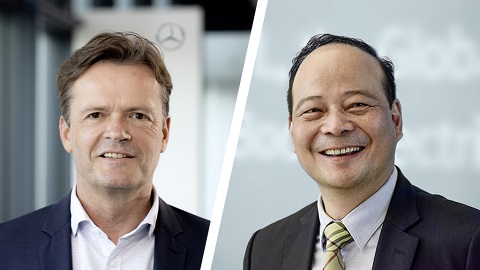
“Mercedes-Benz is a special and important partner to CATL. We are very pleased to further expand and upgrade the partnership for both parties’ future development. Mercedes invented the car more than 130 years ago and has developed its technology with countless innovations. This combined with CATL’s expertise in battery, will be a decisive step in both parties’ electrification strategies. Together we will collaborate on developing and delivering reliable, competitive solutions to promote worldwide e-mobility”
Dr. Robin Zeng, Founder, Chairman and CEO of CATL.
The clear goal is to shorten development cycles, significantly increase the ranges of future batteries through advances in energy density and reduce charging times. In order to make electrification even more attractive for customers in the luxury segment, the goals set are ambitious: With the EQS luxury sedan, which will be delivered to customers next year, the development goal is a long-distance range of more than 700 km (WLTP range) and a doubling of the charging speed compared to current models. The Mercedes-Benz EQS will also be equipped with CATL cell modules. Both the partners are committed to engineer and produce quality- and performance- leading batteries with the most sustainable footprint possible.
Battery products from carbon-neutral production
With “Ambition2039”, Mercedes-Benz is pursuing the long-term vision of a climate-neutral new passenger car fleet and is actively driving the transformation to CO2-neutrality. In order to minimize the carbon footprint of current and future vehicle generations, the partners have agreed to the carbon-neutral production of battery products. To enable this, CATL will use electricity from renewable energy sources, such as wind, solar and hydropower for its production. CO2-neutral battery cell production alone can save over 30% of the CO2 footprint of an entire battery.
At the beginning of 2020, Mercedes-Benz and CATL had already launched a joint pilot project using blockchain technology to create transparency on the emissions of climate-damaging gases and the proportion of secondary material along the battery cell supply chain. The next step is to significantly reduce the reliance on raw material mining through the recycling of end-of-life batteries.
The strategic partnership of Mercedes-Benz and CATL accelerates the further development and industrialization of cutting-edge battery technologies in Germany. With the construction of CATL’s Thuringia plant, CATL is developing a European service system to offer Mercedes-Benz more competitive products, as well as a smooth supply. This will allow Mercedes-Benz to further increase the degree of localization in procurement and to purchase battery products from the CATL plant near Erfurt in the future. In order to maintain competitiveness, the company continues to rely on a balanced set of suppliers.


